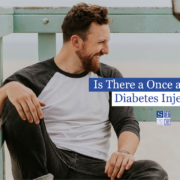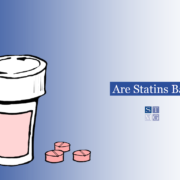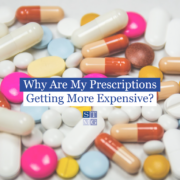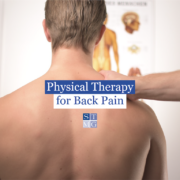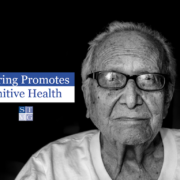Is There a Once a Week Injection that Controls My Diabetes and Helps with Weight Loss?
According to a 2017 report from the CDC, more than 100 million Americans live with diabetes or prediabetes. As we shared on the blog several months ago, nearly 15% of the adult population in Tennessee has diabetes, while 35.8% has prediabetes.
As diabetes becomes a growing concern, many patients are asking their doctor about new and alternative solutions, such as the once-a-week diabetes injection. In addition to helping control diabetes, these injections can also contribute to weight loss, making them a win-win for many patients.
Ozempic, Trulicity & More: GLP-1 Receptor Agonist Medications
Adults with diabetes may have new management options thanks to a class of medications known as GLP-1 receptor agonists. These drugs aid the body in releasing insulin as a response to elevated blood sugar. These drugs are not insulin medications. Rather, they limit the amount of sugar that can enter the bloodstream from the liver. GLP-1 receptor agonists also control the rate at which food leaves the stomach. GLP-1 receptor agonists may be used alone or may be prescribed in addition to insulin.
Overview of Popular Once-a-Week Diabetes Injection Drugs
Diabetes In Control has provided a helpful chart that covers basic information about a few of the most popular GLP-1 receptor agonist medications on the market. We’ve summarized some of this information below. Patients and providers can access the full chart here.
Dulaglutide (Trulicity)
- Half Life: ~5 days
- Average HbA1c Reduction: ~1.5%
- Dosing Considerations: Start with 0.75 mg once per week, increasing to 1.5 mg per week if inadequate glycemic response.
- Short-term weight loss*: ~5.5 lbs
Exenatide (Byetta)
- Half Life: 24 hours
- Average HbA1c Reduction: ~1%
- Dosing Considerations: Start with 5 mcg twice per day. After one month, this may be increased to 10 mcg for better glycemic control.
- Short-term weight loss*: ~4.4 lbs
Exenatide Extended-Release (Bydureon, Bydureon BCise)
- Half Life: > 1 week
- Average HbA1c Reduction: ~1.5% (Bydureon), ~1.4% (Bydureon BCise)
- Dosing Considerations: 2mg once weekly at any time of day, regardless of food.
- Short-term weight loss*: ~5.5 lbs with Bydureon, ~3.1 lbs with Bydureon BCise
Liraglutide (Victoza, Saxenda)
- Half Life: 12-14 hours
- Average HbA1c Reduction: ~1.5%
- Dosing Considerations: Start with 0.6 mg a day for one week; increase to 1.2 mg per day. If glycemic control is not achieved, increase to 1.8 mg daily.
- Short-term weight loss*: ~5.5 lbs
Lixisenatide (Adlyxin)
- Half Life: ~3 hours
- Average HbA1c Reduction: ~1%
- Dosing Considerations: Start with 10 mcg per day for 14 days, then increase to 20 mcg per day. Administer within one hour prior to the first meal of the day.
- Short-term weight loss*: ~4.4 lbs
Insulin degludec/liraglutide (Xultophy 100/3.6)
- Half Life: ~25 hours
- Average HbA1c Reduction: ~1% more than insulin degludec alone.
- Dosing Considerations: Start with 16 units per day and titrate up or down every 3-4 days in two units range.
- Short-term weight loss*: ~5.5 lbs
Insulin Glargine/Lixisenatide (Soliqua 100/33)
- Half Life: ~3 hours
- A1C: 0.5% more than insulin glargine alone
- Dosing Considerations: See sheet for details.
- Short-term weight loss*: ~3 lbs (when compared to insulin glargine)
Semaglutide (Ozempic)
- Half Life: ~1 week
- Average HbA1c Reduction: ~1.5%
- Dosing Considerations: Start with 0.25 mg per week at any time of day regardless of food. Increase to 0.5 mg per week after four weeks. Max dose of 1.0 mg per week.
- Short-term weight loss*: ~8.4 lbs with Ozempic 0.5, ~10.4 lbs with Ozempic 1.0
Are GLP-1 Receptors Right for Me?
Only a doctor can recommend and prescribe this type of weekly diabetes injection. If you’re curious about learning more, talk to your internal medicine doctor at St. Thomas Medical Group. We’re here to partner with you in better health.
* Based on results of FDA-approved clinical trials

